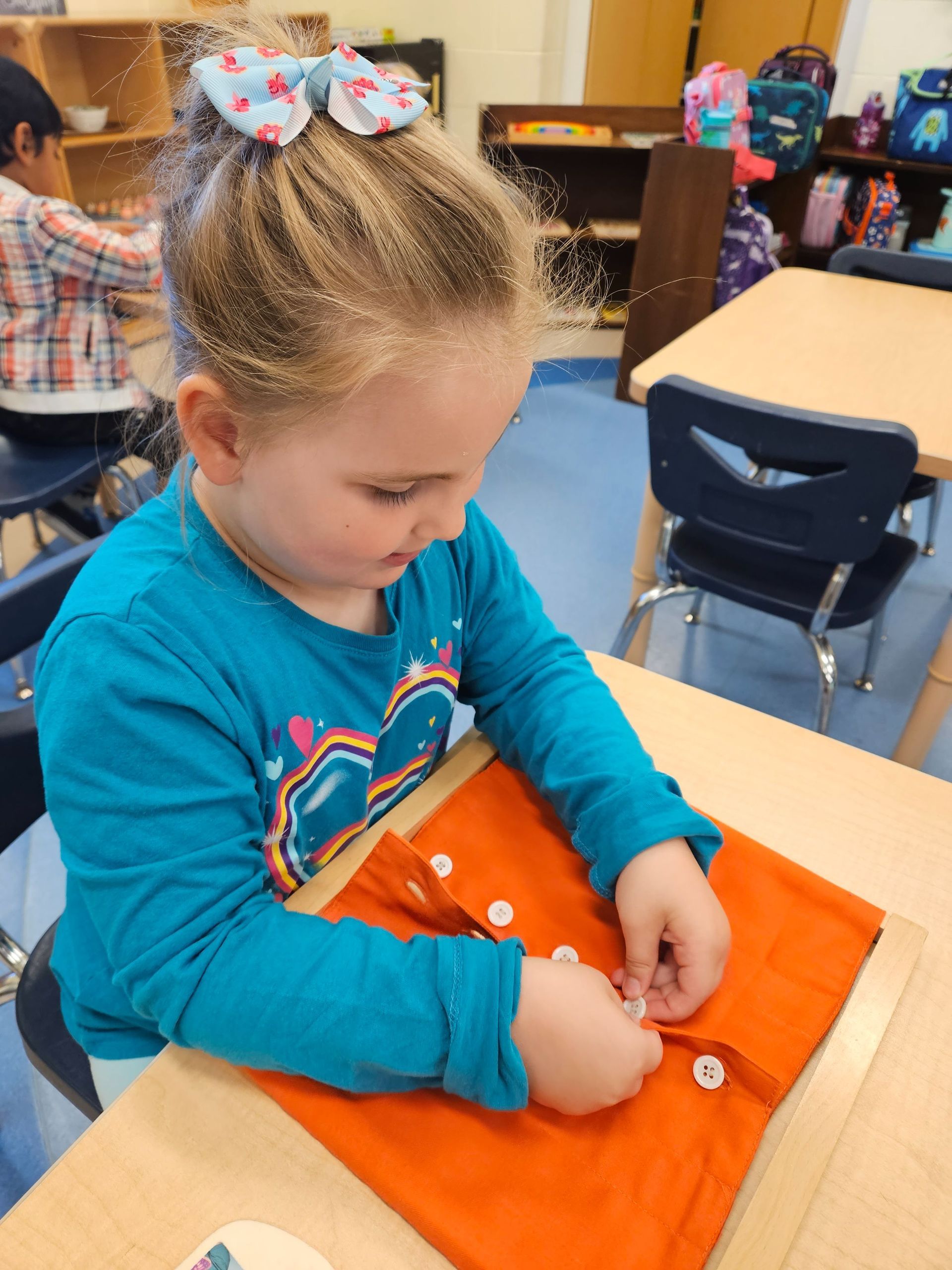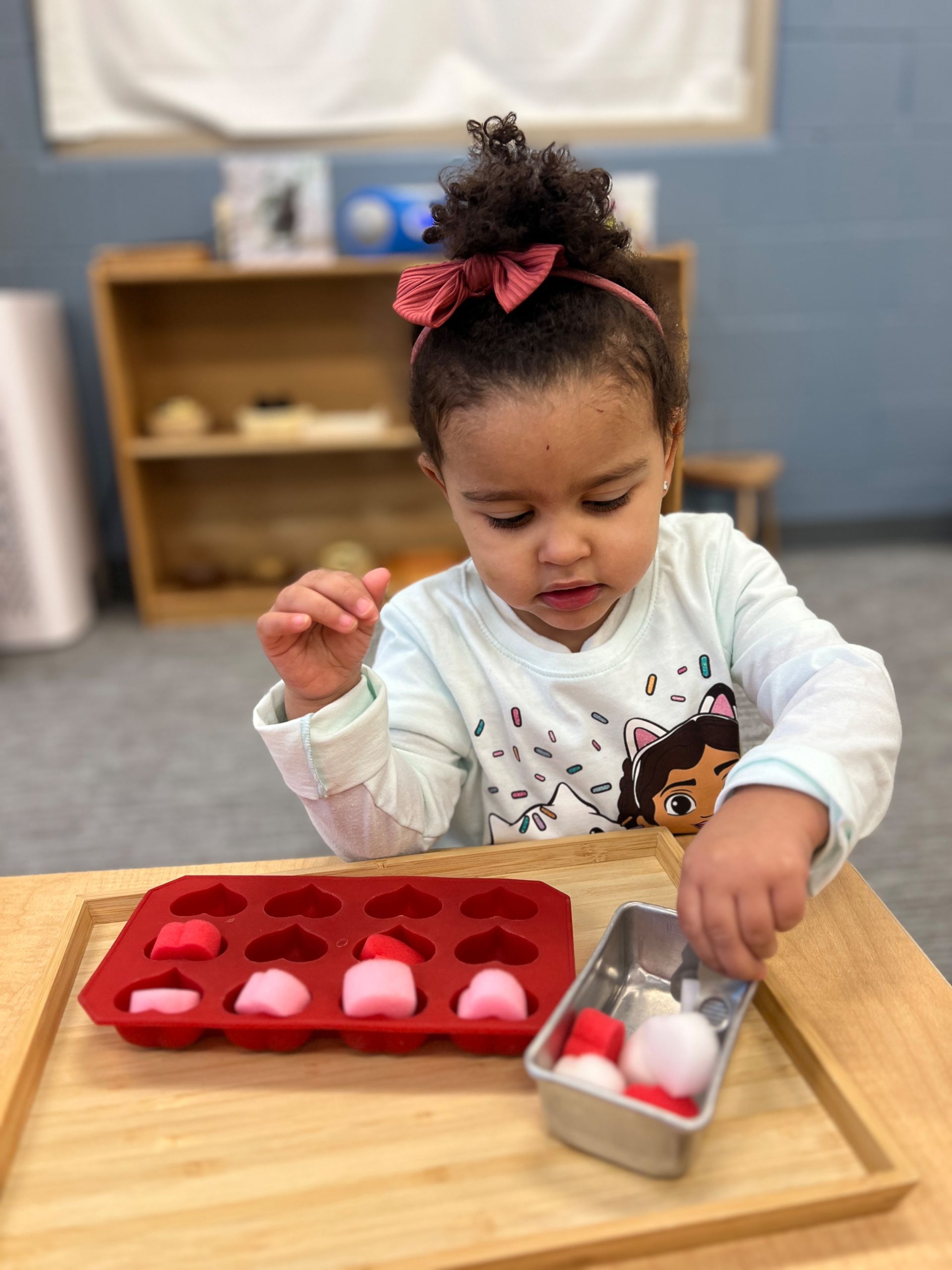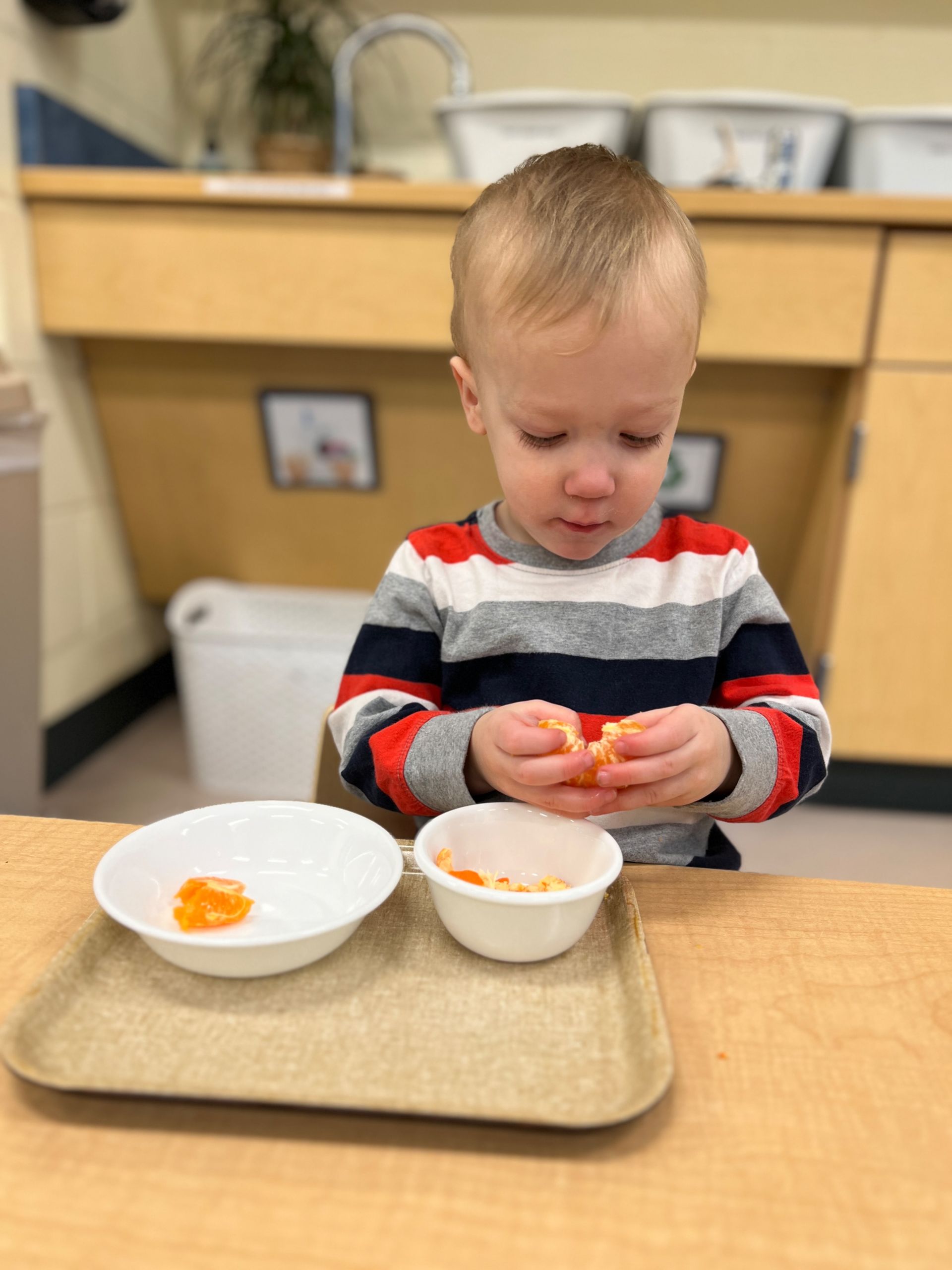Practical Life you say?!?
“A child’s work is to create the man he will become. An adult works to perfect the environment, but a child works to perfect himself.” ~ Dr. Maria Montessori
We can see Dr. Montessori's message in real time by observing two people sweeping debris from the floor. The adult sweeps the floor to accomplish the task at hand. If offered help, the adult may gladly accept. The young child sweeps the floor over and over again. Any offer to help the young child is generally met with resistance. The child protects the broom because he can only complete the task. Through constant repetitive motions, he strengthens his muscles, perfects his coordination, and gains genuine confidence in a specific skill. It is innate within the child to perform such tasks in direct response to his internal mechanisms.

We have all heard about the child who receives toys for his birthday but plays with the box the toy came in. Dr. Montessori observed children's natural tendency to explore meaningful activity through observation. She created the Practical Life exercises to satisfy this human tendency purposefully.
What exactly are these Practical Life exercises? In all honesty, for us as adults, they meet a direct aim. The dishes are dirty and need to be washed. We perform the task of restoring our environment and maintaining it. However, young children are instinctually drawn to these activities. The child comes over to us wishing to help...to take part.
Our experience tells us that the child is drawn to these exercises to continue his selfconstruction. The child is engaged in the exercises when performing them. Why?
- The activities are easily understood from start to finish.
- The exercises have visible movements.
- They give direction to his movements.
- They have an attractive invitation to the child's will.
- The exercises lead to more vital skill sets and mastery.
- They lead to self-accepted discipline.
- They create unity between thought, will, and action.
Practical Life exercises fall into three well-defined groups: Care of Self, Care of the Environment, and Grace and Courtesy.

Dr. Montessori wanted us to aid the young child, not serve them. She felt that adults create dependency rather than personal competence in serving the child. In providing aid toward a task unknown or repetition of a task being learned, adults provide the necessary tools and movement for the children to empower themselves and strengthen their personal competence. Practical life exercises move from simple to complex, shorter to longer, and more extended exercises are generally successive processes. Think of flower arranging, cutting the stems, removing leaves that will touch water, discarding the unused portion of the stem/leaves, getting water from the faucet, filling vases with water, placing the flowers in the vase, placing the vases around the classroom, cleaning the work surface: this is a lengthy process. Yet the children return to it repeatedly, slowly mastering the tease before them while following their will through the art (and gift) of repetition. Little by little, the child continues to add layers to their personal journey and the self-construction of man!

Dr. Montessori said, "Childhood constructs itself with what it finds. If the material is poor, the construction is also poor. In order to build himself, the child has taken whatever he finds in the environment by chance." At Montessori Center of Our Lady, we take our role in our partnership with you seriously and strive to create an authentic Montessori experience for you and your child.
A Felician - Sponsored Ministry
Montessori Center of Our Lady
Montessori Center of Our Lady
Powered by Nido Marketing
